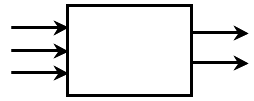A meeting of the San Diego Software Industry Council. The subject: What will Web 3.0 look like?
“Why don’t we know?” asked one venture capitalist. “Are we idiots?”
The VC was pandering to an in-group audience. The implied answer was, No, we’re not idiots, we are successful, sophisticated investors, entrepreneurs, and scholars of the web!
But y’know what? The truth is, yes, we are idiots. We are idiots because of technology colonization, and we fall for it every time.
Fifteen years ago the World Wide Web came along, and what did we do with it? We used it for push-publishing, for banner ads, and to sell stuff from web storefronts. In other words, we treated the WWW like an electronic magazine, or another television channel.
Carl Sagan conjectured that early diurnal mammals feasted on the eggs of nocturnal dinosaurs. He remarked whimsically that a modern breakfast of chicken eggs is among the few relics of our immemorial joust against the dragons. So I think he wouldn’t mind that I spoof his book’s title for this nonsense column.
Let me describe two very different academic careers.
It often falls to the management scientist to evaluate how well a program (in the private, non-profit, or government sector) is performing. There is a great number of ways to go about this task. This article discusses some of the ways to evaluate a program.
Different analysis techniques can be applied to the evaluation task, and as we shall see, the chosen technique is quite important. I don’t address the details of technique in this article My emphasis today is on the variety of evaluation philosophies (principles).
They say the world is changing. Let’s check that out empirically.
We might run a couple of sample surveys, to see how people’s behaviors or attitudes change between the two questionnaire mailings. A colleague, however, suggests panel sampling.
 The Notion Of Nations: Does A Nationalist Pol Know What A Nation Is?
The Notion Of Nations: Does A Nationalist Pol Know What A Nation Is? Resilience: Debunking The Debunker
Resilience: Debunking The Debunker There’s DEI, And Then There’s DEI
There’s DEI, And Then There’s DEI







